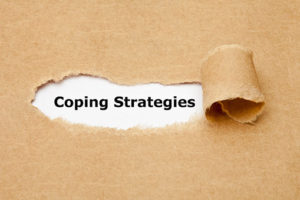Anxiety Therapy
 Have Life’s Daily Stressors Become Too Much To Handle?
Have Life’s Daily Stressors Become Too Much To Handle?
Are you having difficulty managing certain concerns or worries? Is an inability to focus impacting your performance at home, work, or school? Do you suffer from panic attacks that include sudden onsets of shortness of breath, dizziness, and overwhelming fear?
It may be that the stress on your body has impacted your physical well-being, causing digestive issues, muscle tension, and elevated heart rate. You may be struggling with shifts in your energy level, either feeling overly hyper or lethargic. Or perhaps changes in your sleep patterns have resulted in an inability to fall or stay asleep, despite being exhausted.
Feelings of restlessness or constantly being on high alert can have major consequences not only physically but also mentally and emotionally. You may feel as though you can never relax or reset enough in order to be functional in your daily life. Being so distracted may cause you to engage in compulsive or repetitive behaviors, and you may feel too drained at the end of the day to actually do the things you enjoy.
Living this way can lead you to believe that there is no other way to be than constantly on edge. And so, perhaps you have submitted to the idea that anxious thinking is your normal baseline. However, anxiety is a condition that can be managed with therapeutic interventions, and counseling with me is the first stop on your journey towards treatment.
Anxiety Is A Common Reaction To Common Stressors
Anxiety is a very prevalent human condition. In fact, the vast majority of my clients come to me presenting symptoms of anxiety and depression, as the two are often enmeshed with one another. While anxiety can be useful at times—for instance, when feeling nervous for a big work presentation, as it will motivate us to better prepare and perform—it is nevertheless a damaging state to be in for both mind and body if we become stuck there.
As we grow into adulthood, the stressors we face increase dramatically. From feeling the pressure of doing well in school so we can attend a prestigious university and obtain a high-paying job to making sure our finances are in order to provide for ourselves and our families, we have been conditioned to feel extremely afraid of failure. As certain things outside of our control begin to impact our daily lives—like stressful current events, aging parents, and unforeseen life circumstances—we can begin to unravel with concern about what the future holds. Where anxiety was perhaps once helpful in pushing us, it can easily become too commonplace, preventing us from enjoying the activities and relationships that once brought us joy.
The truth is that these worries, while valid, can quickly get to a point where they cause us to no longer be productive. You don’t need to reach the point of utter panic to require outside help for your anxiety.
Studies show that symptoms associated with anxiety can be greatly reduced after a relatively short time in therapy. Counseling can help you to develop a skill set for managing your stress and anxiety so that you may be better prepared to cope with the curveballs that life will surely continue to throw your way. Allow me to support and encourage you in carving out the time for yourself to manage and overcome your anxiety.
Therapeutic Treatment For Anxiety Can Provide You With Coping Strategies To Last A Lifetime
Therapy provides a time and place for you to connect with someone who is invested in your mental and emotional well-being and to address the areas of self-care in your life that have gone neglected. By providing information about the skill sets and interventions that have proven effective for managing anxiety, a counselor can offer you meaningful guidance as you process, address, and relieve yourself of excessive worry and negative thinking.
Working together, we will create both short-term and long-term goals that will help you  to feel more functional and successful in your daily life. In tailoring my approach to meet your needs, I will help you to strategize meaningful solutions to combat anxious thinking and reduce your symptoms over time.
to feel more functional and successful in your daily life. In tailoring my approach to meet your needs, I will help you to strategize meaningful solutions to combat anxious thinking and reduce your symptoms over time.
Using cognitive behavioral therapy (CBT), I will help you to identify your thinking patterns and locate triggers for your anxiety as we develop alternative responses to those triggers that are more helpful and less damaging. And by incorporating elements of acceptance and commitment therapy (ACT), we will take an approach of curiosity with your anxiety, recognizing that while anxiety may be a natural reaction to your life’s circumstances, your thoughts and feelings can be diffused in order to be more rational and less fearful. Incorporating cognitive strategies, I will also teach you mindfulness techniques so that your tension can be brought into the present moment and released.
By participating in the reframing necessary to move beyond your anxious thinking, you will become more self-aware, grounded, and relaxed. You will also learn to observe your thoughts, feelings, and behaviors to understand what is serving you and what is not, in any given moment. And you will be able to engage in self-care methods that can provide you with long-term relief from your anxiety.
Since 2003, I have witnessed the calming effects that self-reflection and mindfulness can have in helping clients to overcome anxiety. With the tools and skill sets I can offer during the course of treatment, you will learn to manage your anxiety in such a way that your quality of life is no longer impacted by a constant cycle of fear and worry. Given the opportunity to explore your anxiety in a nonjudgmental and supportive environment, I am confident that you will be able to reduce stress and live more joyfully both now and into the future.
Perhaps you are considering treatment for your anxiety, but you have some questions…
Other people have it so much worse than me. Why should I seek therapy for my anxiety?
Comparison won’t cure your anxiety. There is no problem that is too big or too small—your life experience is unique to you. And if you are suffering, the right support can help you get to a happier and more functional place in your life. Working with a professional counselor can help you to gain a full perspective on your life’s unique challenges so that you may feel empowered to overcome them.
I don’t have the time and/or money to invest in anxiety treatment.
I encourage you to think about therapy for your anxiety as a long-term investment; time and money spent now will help you to be more productive, capable, and happier in the long run. I have seen my clients make huge strides that allowed them to be more successful in their daily lives, ultimately saving time and money to be spent on the items and activities that help them to feel more fulfilled.
If cost remains a big concern for you, please note that I do accept certain forms of insurance. Contact me to find out more.
Do you have additional training or experience that adds to your practice?
Besides being an LCSW (Licensed Clinical Social Worker), I am a certified addiction specialist (CAADC). Working in addiction recovery has informed my understanding of mental health, and my 17-year career has exposed me to many different people and challenges. I aim to run an ethical, honest, and supportive practice. As such, if it is determined after our initial sessions that I am not a strong fit as your counselor, I am prepared to refer you out to the large community of local specialists who can offer support.
Reclaim The Energy And Power That Anxiety Has Taken From You
If fear and worry are consuming your life and preventing you from feeling successful or fulfilled, therapeutic treatment can offer you the tools needed to manage your anxiety. For more information or to schedule a free, 15-minute consultation to find out about the ways I can help, call (616) 835-0215 or contact me today.
Articles Related to Anxiety Therapy
Can You Get Rid of Your Fears and Anxieties? How to Get Better at Managing Them
Anxiety is one of the most common mental health conditions across the world. But, it’s also very manageable. It’s important to note that anxiety doesn’t typically go away on its own. Many people...
Stress vs. Anxiety: What’s the Difference?
Anxiety is one of the most common health conditions across the world. Everyone experiences stress. But, the two aren’t exactly the same. Understanding the differences between stress and anxiety, as...
How College Students Can Manage Anxiety as They Head Back To School
As fall approaches, many college students are getting ready to head back to school. And whether it’s your freshman year or your senior year, you’ve got a lot on your plate. You’re worried about...
Manage Your Post-Pandemic Anxiety with These Helpful Tips
Did you find that your mental health was affected by the COVID-19 pandemic? Many people struggled with a variety of stressors throughout the pandemic. Essential workers had to risk exposure to the...
How Practicing Mindfulness Can Give Your Better Control Over Your Anxiety
Have you been trying to manage your anxiety without much success? While habit and lifestyle changes aren’t necessarily a cure for anxiety, certain practices can help. Practicing mindfulness can...
Do Stress and Anxiety Affect the Immune System? Here’s What to Know
The human body is a complex and intricately connected system. Emotional challenges such as stress and anxiety don’t just affect your mood. They actually affect your entire body. And the longer you...
How to Deal with Anxiety Caused by the Pandemic
The last year has been an anxiety-filled time for many. It’s safe to say that the coronavirus has wreaked havoc on our personal lives and on the daily functioning of the world at large. Employment,...
What Is High Functioning Anxiety and How Do I Cope with It?
Are you the type of person who always feels antsy, on edge, and unable to relax? Do you think of yourself as an anxious person? You may be the type of person who always seems to have it together....
8 Actionable Tips for Easing Anxiety Outside of Therapy Sessions
Attending therapy sessions is an excellent way to ease anxiety. During your sessions, you're able to sit down and discuss your anxiety and treatment plans to help reduce anxiety. Unfortunately,...
10 Tips for Choosing an Anxiety Therapist
In the United States, more than 40 million people deal with a type of anxiety disorder. You are not alone. Anxiety can cause you to feel panic and tense which can in turn lower your quality of life....


